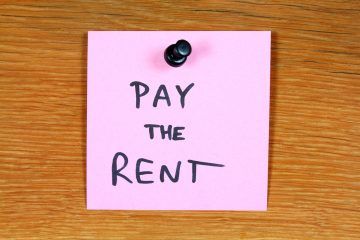A new report from Crisis released today supports the belief that investment in housing benefit would prevent thousands from becoming homeless.
Crisis believes that restoring the levels of housing benefit, otherwise known as Local Housing Allowance (LHA), could make a massive difference.
If it truly covered the costs of market rents, housing benefit has the potential to prevent more than 6,000 households from being forced into homelessness. It could also lift more than 35,000 children in the UK out of poverty in the next three years.
The research, conducted by Alma Economics, outlines the three-year cost and benefit analysis of a Government investment of £3.3 billion in LHA for immediate net benefits of £2.1 billion. Crisis is calling for £820m in the next year as part of upcoming spending decisions.
The charity believes that lifting the benefits freeze and investing in LHA would help thousands currently close to becoming homeless by covering the costs of the cheapest 30% of market rents.
It would also help those already homeless to afford a rented home and significantly reduce the number of families and individuals turning to their local councils for help. In turn, this would reduce the need for homelessness services and extremely expensive temporary accommodation.
Alongside the immediate net benefits of £2.1bn over the three years, this would also give the Government time to build a sufficient supply of truly affordable housing in the years to come whilst ensuring that homelessness across the country doesn’t continue to rise.
LHA is the housing benefit aspect of Universal Credit, providing support to those on low incomes who are unable to meet the cost of private rent. LHA rates were originally set to ensure the recipient could afford the cheapest third of properties in their area, meaning most were able to access a safe and stable home to build their lives in.
However, there has been a series of cuts to LHA over the years, including a four-year freeze from 2016. This has led to rates failing to keep up with the cost of rents in most areas across the country, meaning safe, affordable housing is becoming increasingly difficult to find.
With families and individuals often accumulating debt having to make up the shortfall between their LHA and rent, this mounting financial pressure means they are easily forced out of their home and into homelessness.
Crisis is now calling on the Government to commit to restoring the LHA rates so that they cover the true cost of rent.
Jon Sparkes, Chief Executive of Crisis, said: “Everyone in our society should have the means to rent a safe, stable home where they can build their lives. But every day at Crisis, we hear of the agonising stress and anxiety people face, unable to afford their rent and keep the roof over their head.
“Right now, people are losing their homes and being left trapped in homelessness, unable to get back into adequate housing. We have to stop this happening.
“The UK Government has made commitments to end rough sleeping and reduce homelessness, but without addressing the root causes behind homelessness, it will sadly continue to rise.
“Long-term solutions like building more affordable social homes will take time so in the meantime, investing in LHA, so it covers the true cost of rents, provides the quickest and most effective opportunity to help those already homeless back into housing and for thousands more, prevent it from happening in the first place.
“Over the coming weeks, we urge the Government to prioritise investment in Local Housing Allowance as part of its upcoming spending decisions – this research makes a clear-cut case that doing so will have an immediate financial and human impact. Ending homelessness for good is truly within our capabilities but will only be made possible by taking steps like this.”
Terrie Alafat CBE, Chief Executive of the Chartered Institute of Housing, said: “The Chartered Institute of Housing is pleased to join Crisis and so many other organisations in calling on the government to restore local housing allowance to cover the most affordable 30% of rents.
“It is a national shame that thousands of families face being made homeless and councils are spending £1 billion a year on temporary accommodation because LHA is failing to do its job. Addressing this issue will bring the government significant savings in the benefit bill, as well as giving some of our most vulnerable fellow-citizens a more secure environment in which to live.
“A staggering 97% of private rents in England are currently simply unaffordable under benefit rules. This leaves thousands of families having to choose between paying their rent and feeding their children. The social and economic cost of this broken system simply cannot be justified.”





